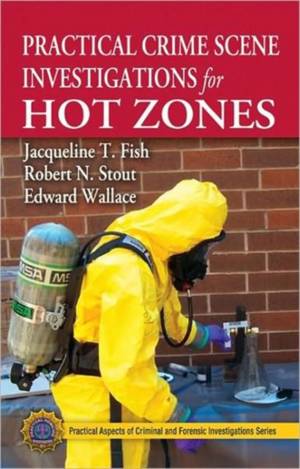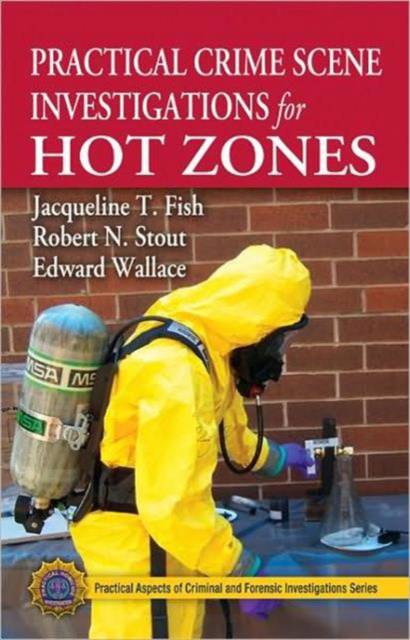
- Retrait gratuit dans votre magasin Club
- 7.000.000 titres dans notre catalogue
- Payer en toute sécurité
- Toujours un magasin près de chez vous
- Retrait gratuit dans votre magasin Club
- 7.000.0000 titres dans notre catalogue
- Payer en toute sécurité
- Toujours un magasin près de chez vous
Description
The work of Crime Scene Investigators (CSIs) is made more complicated when the scene is contaminated by either Chemical, Biological, Radiological, Nuclear, Explosives (CBRNEs) or Toxic Industrial Chemicals (TICs). Special considerations must be observed when working at such scenes, whether they are the result of acts of terrorism, accidents, or natural disasters. Practical Crime Scene Investigations for Hot Zones contains guidelines and best practices for keeping CSIs safe and conducting a thorough crime scene investigation in these deadly environments.
A compilation of professional experiences and observations from CSIs who have encountered these challenges in the field, the book offers strategies for dealing with a host of scenarios. The expert contributors discuss practices and procedures validated by the U.S. Department of Homeland Security and the FBI's Hazardous Materials Response Unit and Laboratory. Topics discussed include:
- Chemical, biological, radiological, and nuclear threats encountered by CSIs and other personnel
- Laws, regulations, and standards that apply to working in a hazardous environment
- Equipment for personal protection and evidence recovery
- Roles and responsibilities of personnel on the scene
- Collecting, processing, and documenting evidence
- Decontamination of the scene
High consequence events (HCEs) have increased in recent years as terrorism and natural disasters have dominated the headlines. Enhanced with nearly 300 color photos, this one-stop reference supplies practical information to keep CSIs, first responders, HAZMAT technicians, incident commanders, and military and intelligence officials safe from the hazards they may encounter on the job.
Spécifications
Parties prenantes
- Auteur(s) :
- Editeur:
Contenu
- Nombre de pages :
- 372
- Langue:
- Anglais
- Collection :
Caractéristiques
- EAN:
- 9781439820520
- Date de parution :
- 16-12-10
- Format:
- Livre relié
- Format numérique:
- Genaaid
- Dimensions :
- 150 mm x 236 mm
- Poids :
- 771 g

Les avis
Nous publions uniquement les avis qui respectent les conditions requises. Consultez nos conditions pour les avis.






